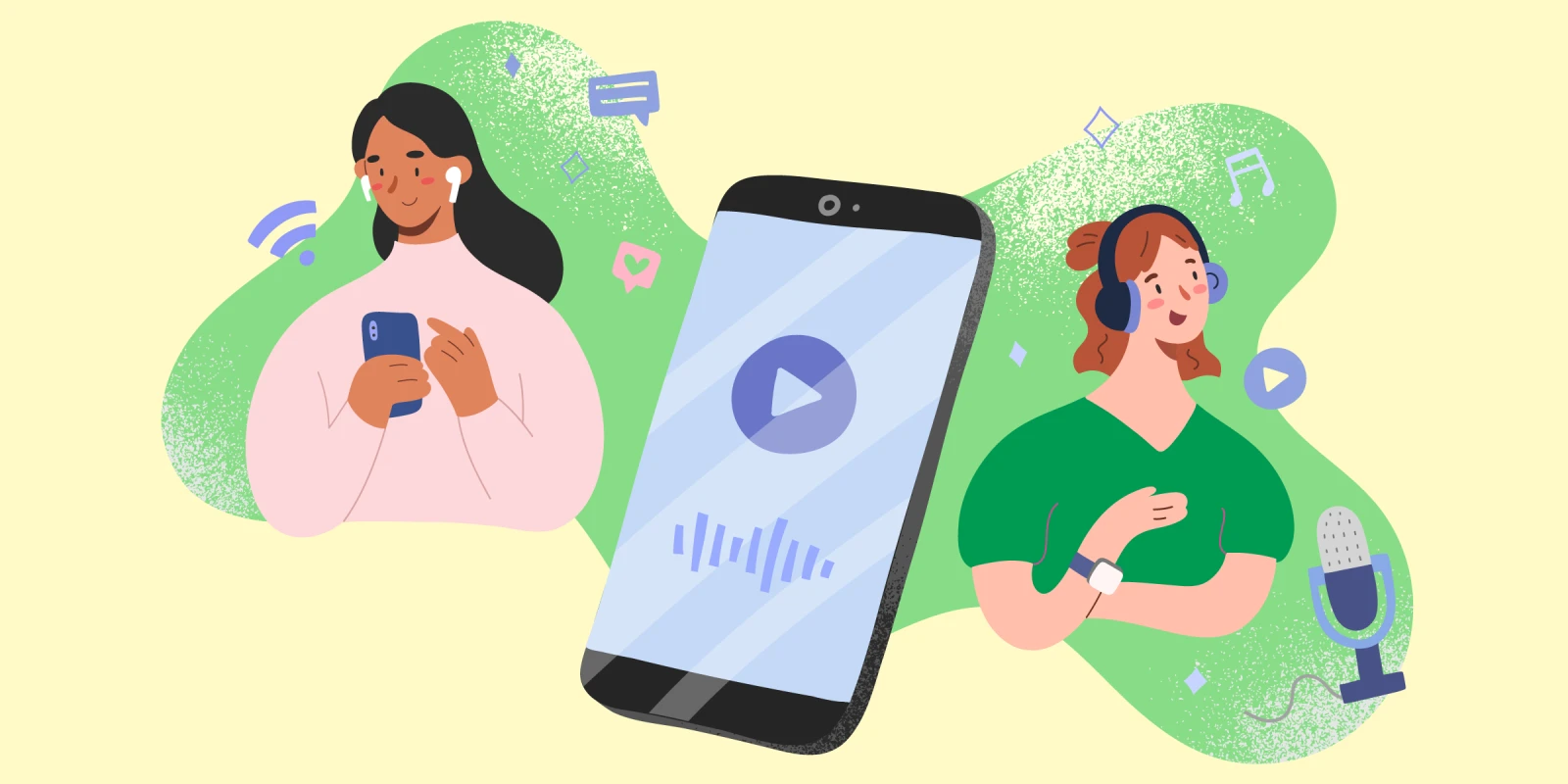Call me the learning expert: When I’m not in the clinic, looking over question banks, or reviewing UpToDate, I keep up with medicine by listening to medical podcasts. I like to choose episodes that touch on knowledge gaps in my regular education — from new H. pylori management guidelines to the latest in medical cannabis usage to common childhood respiratory infections. Any time I’m home doing chores, these medical podcasts are playing in my ears, teaching me valuable new information.
This hobby of mine is not only edifying, it is also accessible: Medical podcasts are available at no cost in almost every specialty. Over the past decade, podcasts have become a growing form of asynchronous education among learners in the field of medicine, from medical students like me to nurses and pharmacists. Meanwhile, attending physicians and APPs frequently use podcasts to obtain CME and CE credits. Clearly, medical podcasts represent “a paradigm shift” in a field that embraces lifelong learning. But podcasts come with potential risks, as well — the novel form of education they represent is variable and non-standardized.
Relying on gestalt is how I, and most other podcast listeners, determine if a source is high quality; however, this lack of oversight raises important ethical considerations around conflicts of interest. As a listener, it is obvious to me that many educational podcasts depend on advertisements, played at the beginning or nestled into the middle of episodes. According to a recent analysis, as many as 90% of the most well-known medical podcasts are produced by individuals or companies rather than traditional institutions, which means that advertisements are necessary for them to bring in revenue. While ads for test preparation courses or professional society meetings might not raise concerns of bias, the same cannot be said for ads for drug and medical device companies or meal-kit services. Importantly, there are no official guidelines from the American Medical Association Code of Medical Ethics on how to manage funding sources or potential conflicts of interest in medical podcasting — an oversight also present in the adjacent world of medical influencing.
Another gray area arising from medical podcasting is podcasts’ role in medical education. Though medical podcasts have largely followed best practices in involving expert interviews, citations, and peer review processes, and routinely have tens of thousands of listeners, they are not recognized as a formal learning tool on the same level as review papers or grand rounds. As a trainee, podcasts have been vital to my development as a physician — for example, I recently tested a patient with H. pylori for immune thrombocytopenia thanks to what I learned in a recent episode — but the fact that listening to and creating podcasts is not deemed “formal” in the way that creating papers and presenting at conferences are has dissuaded me and many other clinician educators from leaning in to this important and growing arena.
Despite these challenges, many medical educators are still moving full speed ahead in the podcasting space. And schools, too, are catching on: For example, Beth Israel Deaconess Medical Center, a major teaching hospital of Harvard Medical School, has created the first Digital-Education Track for internal medicine (IM) residents. At Beth Israel, in addition to learning traditional education theory, residents learn how to design tweetorials (educational tutorials on Twitter), and to create educational podcast episodes. I interviewed residents on this track, and saw common themes emerge: 1) the future of medical education is digital; 2) the track allows residents to engage with colleagues and experts digitally and democratically; and 3) the creation of podcasts requires many of the same skills necessary for the creation of review papers or conference presentations, such as the ability to distill and disseminate complex information.
In addition, several residents remarked to me that the most gratifying part of creating a podcast was the reach: their podcast was listened to tens of thousands of times, while a review might get fewer than a hundred views. This shows that podcasts are not just educational tools, they’re empowerment tools as well. Indeed, a 2021 article found that the creation of podcasts can support students’ personal and professional identity formation. Taken together, this begs the question: Why is there not more emphasis on podcasts in medical curricula?
The truth is, this novel form of digital education is already important in medical education, whether medical schools recognize it or not — just look at my H. pylori example above! Thus, I believe that rather than ignore or dismiss podcasts, we should instead standardize them. One way to do so is via increased guidelines on advertisements and conflict of interest statements from medical organizations. Another way is to consciously integrate certain podcasts into the medical curriculum, as well as courses on media literacy (i.e., the ability to determine which podcasts are most useful) and critical appraisal.
In addition, I would appreciate it if schools would offer guidance and training on how students can create (ethically sound) podcasts of their own, sponsored perhaps by education and research funding. For a model, I look to the University of Cincinnati College of Medicine, which has a student-run medical education podcast co-created by faculty with the aim of fostering professional identity formation for students. Or I consider the aforementioned Beth Israel, which developed its Digital-Education Track in response to how the majority of IM residency programs have tracks focused on building traditional clinical educators only, despite the growing digital and asynchronous nature of medical education.
I leave you with this: At the end of the day, medical podcasts are only becoming more ubiquitous. In order to maximize their impact and minimize their harm, then, it’s imperative that we put tools and structures into place to standardize them.
Do you think medical podcasts belong in medical education? Share your reasoning in the comments below.
Ellen Zhang is a Harvard Medical Student who is passionate about using writing as a lens to unravel the complexity of medicine, enhance empathy, and provide humanistic care. She enjoys hiking, baking, and exploring local cafes. Ellen is a 2022–2023 Doximity Op-Med Fellow.
The author would like to thank the mentorship and support of Dr. Adam Rodman, Co-Director of the Innovations in Media and Education Delivery (iMED) Initiative at BIDMC, for encouraging and reviewing this piece.
Image by Ksenia Zvezdina / GettyImages







